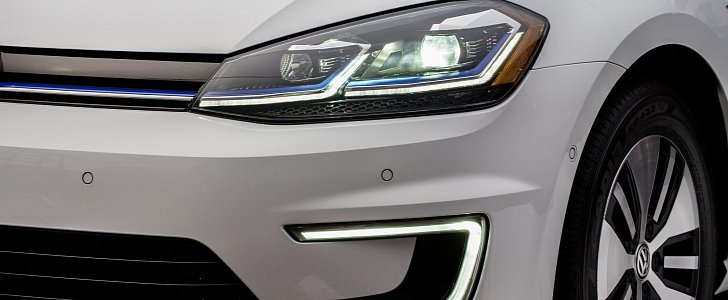After it announced in June it will become the majority shareholder in the solid-state battery company QuantumScape, Volkswagen revealed on Thursday it has finalized the transaction.
$100 million were spen byt the Germans to acquire a majority stake. The auto giant will also set up a joint venture with QuantumScape that would ease industrial-level production of solid-state batteries.
Most of the electric cars on the market today use lithium-ion batteries. These batteries use liquid electrolyte to make current flow between the positive and negative electrodes, the anode and cathode.
Unlike lithium-ion, solid-state batteries use a solid electrolyte to regulate the flow of current. The working principles are the same, but using solid instead of liquid comes with several advantages, the most important of which being better fast charging capabilities and a smaller size.
“Solid-state battery cell technology is seen as the most promising approach for the next-but-one generation of e-mobility. This battery technology has several advantages over the present lithium-ion technology: higher energy density, enhanced safety, better fast charging capability and a much smaller space requirement,” says Volkswagen in a statement.
As part of the new joint venture, Volkswagen will be bringing production expertise and know-how in scaling projects. For its part, QuantumScape will give the carmaker access to the technologies it has been developing and will work on improving them.
The biggest challenge facing the two is the fact that these batteries are extremely expensive to make. The two companies plan to have a production facility for solid-state batteries up and running by 2025.
For decades another carmaker, Toyota, has been working on the development of such a technology and plans to introduce them to the market no sooner than 2022.
A prototype the Japanese presented in 2010 could be safely used at temperatures above 212 degrees Fahrenheit (100 degrees Celsius), a level that would cause the liquid electrolytes in existing li-ion batteries to boil over.
Most of the electric cars on the market today use lithium-ion batteries. These batteries use liquid electrolyte to make current flow between the positive and negative electrodes, the anode and cathode.
Unlike lithium-ion, solid-state batteries use a solid electrolyte to regulate the flow of current. The working principles are the same, but using solid instead of liquid comes with several advantages, the most important of which being better fast charging capabilities and a smaller size.
“Solid-state battery cell technology is seen as the most promising approach for the next-but-one generation of e-mobility. This battery technology has several advantages over the present lithium-ion technology: higher energy density, enhanced safety, better fast charging capability and a much smaller space requirement,” says Volkswagen in a statement.
As part of the new joint venture, Volkswagen will be bringing production expertise and know-how in scaling projects. For its part, QuantumScape will give the carmaker access to the technologies it has been developing and will work on improving them.
The biggest challenge facing the two is the fact that these batteries are extremely expensive to make. The two companies plan to have a production facility for solid-state batteries up and running by 2025.
For decades another carmaker, Toyota, has been working on the development of such a technology and plans to introduce them to the market no sooner than 2022.
A prototype the Japanese presented in 2010 could be safely used at temperatures above 212 degrees Fahrenheit (100 degrees Celsius), a level that would cause the liquid electrolytes in existing li-ion batteries to boil over.

